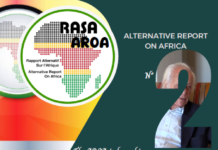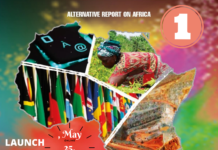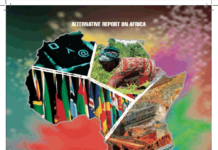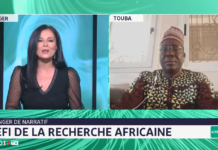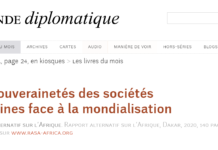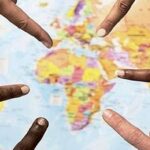For Cameroonian economist Martial Ze-Belinga, the development potential of the cultural economy in Africa must be unleashed. This under-exploited sector could become one of the most promising for the continent.
The economy has changed its engine. After commodities, it is the rise of the middle class and the digital revolution that are boosting the continent. Half of the world’s fastest growing countries are African. In this article, we will share with you the business opportunities on the continent that will make more millionaires.
1) Solar energy
Solar energy is one of Africa’s most abundant natural resources. Most parts of sub-Saharan Africa enjoy more than 300 days of God-given free sunshine each year.
Yet more than 600 million people on the continent, particularly in rural areas, do not have access to reliable electricity. In most cities, power outages are a daily occurrence and people often rely on petrol or diesel engines.
Solar energy is free, absolutely clean and abundant. And it offers the best alternative for people in remote parts of Africa who are beyond the reach of the electricity grid.
Interestingly, some smart entrepreneurs are taking on the challenge of lighting up Africa through solar power, and are very likely to join the millionaires’ club in 2016.
Here are some interesting examples…
nie recently raised $25 million from international investors and won a $5 million grant from USAID. The company is already on track to provide solar power to 1 million homes in East Africa in 2017 and has recently expanded into Rwanda.
M-KOPA, which provides pay-as-you-go solar energy systems, has attracted investments of up to $40 million. The Kenya-based company has already provided solar power to nearly 300,000 homes in Kenya, Tanzania and Uganda.
2) Agri-food
Agribusiness is Africa’s untapped gold mine, and a major potential source of millionaires in 2016.
According to a World Bank report, Africa’s agri-food industry will be worth $1 billion by 2030.
With over 60% of the world’s uncultivated arable land, fertile soils, abundant labour, and year-round sunshine, Sub-Saharan Africa certainly has the potential to become the world’s largest food exporter.
Even if Africa decides to ignore export markets, the continent’s one billion inhabitants offer a huge and ready market for agribusiness.
Yet every year, African countries import more than 70% of the wheat consumed, more than 300,000 tonnes of chicken and spend more than $10 billion on imported cereals, especially rice.
Interestingly, more African entrepreneurs are tapping into the vast opportunities in Africa’s agri-food market.
And with the impacts of the collapse of crude oil prices in 2016, agribusiness giants such as Nigeria and Angola are finally putting a strong emphasis on agribusiness as a way to diversify their economies. This means that the governments of these countries are now more open and supportive of agribusiness initiatives.
3) Smartphones
Guess what? It sells for about $129, and it’s selling like hotcakes.
Africa is currently the second fastest growing market for mobile phones, after Asia. However, the first wave of the mobile phone revolution in Africa is almost over.
These days, African consumers are looking to ditch the ‘first generation’ phone for smartphones. It is therefore not surprising that the growth of technology and fashion on the continent now presents a multi-billion dollar market for smartphones.
However, most of the ‘new generation’ smartphones like the iPhone, Blackberry and Samsung are quite expensive for the average African. This has created a huge opportunity for low-cost smartphones.
Best of all, many of these smartphones are built on the Android operating system, have features similar to those of « high-end » smartphones and most are just as elegantly designed.
In the last eighteen months, more than a dozen low-cost smartphone brands have made their debut in the African market. Given the market potential of these phones, they will most likely make more millionaires for the entrepreneurs behind them.
4) Internet access
The Internet market in Africa is worth billions of dollars.
No wonder tech giants like Google and Facebook are struggling to improve internet access for millions of Africans. Google’s Project Loon and Facebook’s Free Basics are just two of many bold initiatives to connect Africa.
However, some smart African entrepreneurs are already making impressive moves to capture the Internet access market.
One example is ‘BRCK’ a start-up company in Kenya that has created a robust internet modem device that is designed for harsh environments with limited internet connection and electricity. The modem can juggle Ethernet, WiFi, 3G and 4G, and comes with eight hours of battery life.
This African-inspired invention has already sold thousands of units in 54 countries, even as far away as India. Their main customers are schools.
Recently, BRCK raised $3 million in investor funding to expand the reach of this amazing device. The entrepreneurs behind it will surely be smiling during 2016.
5) Education
Africa’s young talent is the most ignored and under-supported.
With one of the youngest populations in the world (over 50% of Africans are under 31), the continent is rich in creative and innovative talent. However, lack of access to quality education is a serious threat to Africa’s human capital.
Currently, a couple of interesting companies and initiatives have had remarkable success in addressing the problems of education in Africa.
Bridge Academies (in Kenya and East Africa) and Omega Schools (in Ghana and West Africa) have built an incredible education model of low-cost primary schools that allow students to pay less than $1 a day for school fees.
Another interesting company on the African education scene is Andela. Through its free and very rigorous training programme, Andela is developing promising African talent including top software developers who are hired on the likes of Microsoft and other technology giants in the US and Europe.
This interesting business model is called « talent-as-a-service ».
Andela has recently attracted $10 million in investment and is on track to train about 100,000 world-class African software developers over ten years.
6) African art
How much do you think African art is worth these days?
You will be surprised.
In November 2014, a collection of ancient African art from Mali, Gabon, Congo and Liberia was sold in New York at Sotheby’s for a record $41m. This is the largest sum ever achieved from the sale of African art in the United States.
Not too long ago, a set of wooden sculptures by Nigerian artist Ben Enwonwu sold in London for over $500,000, three times the expected price.
New World Map, the sculpture by El Anatsui, the Ghanaian artist, sold for approximately $767,000 in aluminium and copper, one of the highest prices ever awarded for the work of an indigenous African artist.
After decades of neglect, both ancient and contemporary African art is attracting high prices in the world’s major art markets.
In 2016, more investors and collectors will be tuned into the demand for African art, and more millionaires will be in the process.
7) Retail trade
In April 2016, the Mall of Africa will open in South Africa. This massive 131,000 square metres of retail space is the largest shopping centre in Africa ever built in one phase.
Recently, the Two Rivers Mall opened in Nairobi, Kenya. It is the largest shopping centre of its kind in East Africa.
Across the continent, both local and international supermarket brands such as Shoprite, Game, Checkers, Woolworths, Edgars and Spar are expanding and jostling for every inch of available shopping space and developing retail infrastructure.
Interestingly, the battle for retail supremacy in Africa has shifted from physical retail chains.
E-commerce giants such as Konga and jumia have grown impressively in recent years. The two Internet-based retail companies are now worth a combined value of over $1 billion.
In fact, the battleground for Africa’s retail market is moving beyond the continent’s shores. With new e-commerce entrants such as Mall of Africa and Shop to my Door, it is now possible for Africans to shop directly with retailers in the US, UK and China.
Unbelievable!
Africa is now one of the fastest growing retail markets in the world. A growing middle class, increasing local purchasing power, and a boom in the number of expatriate workers are fuelling the shopping trend on the continent.
8) Online applications and services
There is a digital revolution in Africa. These days, many services now have an app or go online. Africa’s digital economy is growing very fast.
These days there is almost an application or online service for everything you want.
If you are looking for suitable hotel accommodation in Nigeria, Hotels.ng and Jovago.com are now the largest online services in the hotel booking industry. Recently, Hotels.ng attracted an investment of $1.2m.
If you want to watch African films on the fly, there’s an app for that. IrokoTV is an application that gives you access to over 5,000 African films on your mobile phone.
In January 2016, IrokoTV received an additional $19 million in funding to expand its presence across Africa.
If you want to order bespoke pieces, without having to run to artisans or worry about quality, there is an online service for that too. Showroom.ng is a Nigerian start-up that is changing the way people buy furniture in Africa’s largest economy.
In 2016, more online applications and services will be launched across Africa to solve problems and bring value. And more millionaires will be involved in the process.
9) Payment solutions
Every year in Africa, more than $100 billion in transactions are still made in cash. This presents a huge and lucrative financial services opportunity for savvy entrepreneurs.
Since M-Pesa was introduced in East Africa, mobile money transfer and its payment service has been phenomenal in Kenya and Tanzania, where the platform handles over 200 million person-to-person transactions each year.
In other parts of Africa, there is a huge scramble for the next money transfer and payment service.
In Nigeria alone, several promising companies are vying for dominance in Africa’s largest economy. Some of the contenders are Paga, PayAttitude, SimplePay and PayWithCapture.
Less than six months ago, Paga attracted a $13 million investment to expand its operations inside and outside Nigeria.
Payment solutions will be opportunities to watch in 2016.
10) Real estate
Africa’s real estate market is worth billions of dollars, and many new millionaires will build their fortunes in this market.
In almost every corner of the continent, real estate projects are being built. The biggest attractions are high-rise hotels and office buildings, residences and flats, and shopping centres.
In Nigeria alone, there is a shortfall of 17 million housing units, with a financing requirement of $363 billion.
In Angola’s capital, Luanda, the first office rents are among the highest in the world at US$150 per square metre per month.
In Mozambique, property prices in the ports, particularly for warehouses, are among the most expensive in Africa.
The main property markets are Angola, Nigeria, Egypt, Mozambique, South Africa and Kenya. All these countries are experiencing a property boom like never before in history.
Africa’s large and young population, a growing middle class, increasing urbanisation, the influx of expatriates and multinational companies are the main drivers of demand for both commercial and residential property.


